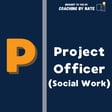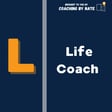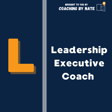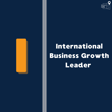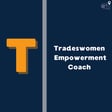Become a Creator today!Start creating today - Share your story with the world!
Start for free
00:00:00
00:00:01

Jeweller: Navigating the World of Fine Jewellery, Diamonds, and Gems with Louis - An In-Depth Exploration
Curious about the world of fine jewellery, diamonds, and gems? Join us this week as we unravel the mysteries of the industry with Louis, a passionate entrepreneur in the field. Discover the nuances between lab-grown and natural diamonds and delve into the captivating realm of jewellery design.
Louis shares his inspiring journey of how he ventured into the fine jewellery business, this episode is a must-listen for aspiring entrepreneurs and jewellery enthusiasts alike.
Tune in for an engaging conversation that sparkles with knowledge and passion!
Transcript
Meet Louis: Passion for Jewelry Design
00:00:28
Speaker
Do you know the difference between a lab-grown diamond and a natural diamond? In this week's episode, you'll meet Louis, who works in fine jewelry. Hear how he got started in the business, his passion for design, and the steps he's taking to establish himself as an industry expert. Hi, Louis. Welcome to our podcast. Hi, Roxy. Hi, Nate. Thank you so much for taking the time today. Thank you. Thank you. Thank you so much for having me. No worries. No worries. And let's dive in. Like I always say, let's find out what you do for a living.
00:00:58
Speaker
So I make jewelry for living or make fine jewelry for living. So we make diamond rings or diamond earrings for customers. And I'm also a James Stone who sellers my specialties is in subfires. So we also sell. So that means we sell subfires to jewelry designing companies as well. So that's what I do for living.
00:01:27
Speaker
Oh, wow. Diamonds. Oh, that's so cool. Thank you. Thank you. Yeah, I would have to say that people have this like fantasy about diamonds. But if you deal with every day, it just like, it's just like a record of things like for me. So so yeah. Yeah, I think I only have a set of earrings my mom gave me. Yeah. Gone down years and years. But yeah, you're better than a girl's best friend, I guess.
00:01:56
Speaker
Thank you so much for saying that. Yeah. That should be your tagline. I mean, this could be my slogan, you know. Yeah, yeah. Oh gosh.
Lab-Grown vs. Natural Diamonds: A Focus on Natural
00:02:10
Speaker
I was reading the other day that there's a couple of different types of diamonds, like there's
00:02:16
Speaker
like natural diamonds or lab grown diamonds, do you deal with much of that? So right now at this point, I'm only focusing doing the natural diamonds because that is something I have experienced with in the past.
00:02:34
Speaker
But I can see there are leprechaun diamonds growing in the market. And in my opinion, I think it's sort of taking some market share of the natural diamonds, especially for the smaller ones, smaller diamonds.
00:02:51
Speaker
But I think which makes sense because it's so much cheaper and it's more affordable. So I understand why that happens. But I also think that the natural diamonds has been around Earth for millions of thousands of years and has been on Earth for really like a long time.
00:03:15
Speaker
So it has its value and it has its history as well. But right now, I'm only focusing on the natural ones. For the leopard ones, we will see what happens in the future. We will see if it will take over the natural ones or will it be his own market? I don't know and I'm not the one to say about that. But at the end of the day,
00:03:40
Speaker
From my opinion, I think natural diamonds and leprechaun diamonds, they are two completely different things. Even the material is the same, but it's just like eggs. Some people love one of the eggs. Some people love something of the egg. You have your own taste and it really depends on your budget.
00:04:00
Speaker
I would also say it really depends on your purpose when it comes to purchasing diamonds. If you're like a billionaire and you wanted to invest something that is going to keep this value, then you're definitely going to go with natural diamonds. So it really depends on your purpose and what are you going to do with your diamonds.
Diamonds and Family: Sentimental Stories
00:04:23
Speaker
My grandfather was a, he managed diamond mines in Africa. And he sat me down when I was like six years old and said, if someone offers you a diamond rock, say, and you bloody take it. The amount of times I've been offered a diamond, not at the table, and I never took it. You take it. And that's weirdly stuck with me forever. And I didn't know he was a miner at that point. Years later, my parents explained it to me. I was like, oh, okay.
00:04:54
Speaker
Wow, that is a fascinating story. Yeah, he moved around the world managing minds and had amazing stories, which is so cool.
00:05:05
Speaker
But yeah, I really cherish that you are going for the natural ones because the stories that actually come out of the diamonds that are produced are amazing. Yeah, exactly. And I would also say with natural diamonds, it usually comes with history as well. For example, one greatest diamond is the Hope Diamond.
Famous Diamonds and Their Stories
00:05:27
Speaker
So the Hope Diamond is
00:05:29
Speaker
actually you heard about the Mothrie Titanic, right? Yeah, so actually the necklace is based on the Hope Diamonds and just about Hope Diamonds you can realize is known as an unlucky diamond. A lot of owners of the diamond has been you know just
00:05:48
Speaker
killed or passed away. So you learn about this kind of stories and you learn about brands like Henry Winston. And so a lot of this kind of fascinating stories you can just learn by, you know, a piece of diamonds. And I think that is something fascinating about the diamonds. It's not just about the value or the load, it's also about the history and also the stories behind it.
00:06:17
Speaker
Now they all have some kind of history and it's amazing. Exactly, exactly. And I do have this to think about something that
Emotional Value of Personal Jewelry
00:06:25
Speaker
can last forever, like diamonds or gemstones. It lasts forever. It's not just like a head of glass.
00:06:36
Speaker
after for the wire it will be broken then you need to get it fixed but diamond gemstone I feel like there are some special specialties about it it is something special something personal something emotional to the owner so I think that's the reason why I joined the industry one of the reason why I'm still here you know it is definitely jewelry has that effect on people I have
00:07:04
Speaker
So I've lived in so many different countries in the world, and my little jewelry pouch is kind of where I feel at home and explain to people where I got certain things, because they're kind of like the certain milestones in my life. So I have three bangles on my wrist, and they're all gold or white gold. One's from when I was 18, one was when I was 21, and one's from my wedding day. And my mom and dad got my mom, the 18,
00:07:31
Speaker
is from my grandmother, it's gold. She got them made when we were all born as kids, and she's been giving them out as, like, it's something beautiful that you get on your 18th. It's a rite of passage, essentially. My 21st is white gold and gold, that's from my mum, and that's from South Africa, oh, sorry, that's from Nairobi, Kenya, where the white gold and gold mines are.
00:07:53
Speaker
And then my marriage one is actually Welsh gold. My husband bought it for me and he found out that these bangles are actually called slave bangles. And he thought it was quite funny that I was becoming his slave. But, you know, every jewelry piece has that beautiful story, that memory, and it means so much to each person who owns it.
00:08:15
Speaker
Yeah, exactly. And I've made a lot of engagement rings for my friends
Building Relationships Through Jewelry
00:08:20
Speaker
or for my clients. And it just feels like we're building like a stronger relationship, especially for my friends that I know them more. I know them like, okay, why do you why don't you want to go with a round diamond, you want to go with a hardship diamonds, maybe some
00:08:39
Speaker
something happens, you know, some great memory that he had with his partners. So, which is something I feel like by making them a piece of jewelry, I know them better and would create a stronger relationship. And that is something I like about my job. It's just like, know that person better by making them a piece of jewelry, which is so great and so fun to do. That's brilliant.
00:09:08
Speaker
Yeah, you're changing minds. Yeah, building a community at the same time. Exactly. And I can make a living out of that. To be honest, you know, yeah, no, it's good. That's why people are here. It's like, how do you make a living out of something you're passionate about? Exactly.
00:09:27
Speaker
Exactly. That's probably a good segue to the next question then.
A Day in the Life of a Jeweler
00:09:31
Speaker
So, working in the fine jewellery industry, what does an average day look like for you? What sort of tasks need to happen for this career? Are you feeling inspired by everything you've learned so far? Keep that momentum going with our four-part Career Change Made Easy course. Dive deeper at thecareerchangecoaches.com. Now, enjoy the rest of the podcast.
00:10:00
Speaker
Well, for me, because I mainly work with individual clients and also I would say 70% of my business is for custom made jewelry and 30% is for just selling the gemstones or
00:10:18
Speaker
to designing companies. So the first thing my day is always try to computer first, see if there's any new messages, new emails coming in. And then the second thing I would do is check with the vendors, see where my guests are, because sometimes it is not necessary in Hong Kong the diamonds I purchased or the gems I purchased. So I need to keep track on the shipments.
00:10:47
Speaker
thank God in my career, nothing gets lost, you know, which is something. Yeah, I hope it never happens in my life. Exactly. So check on the shipments and also check on the shipment from the vendor other chapters, track the shipments that I send to the clients as well.
00:11:10
Speaker
I have clients from all around the world. I just sent engagement ring last week to one of my clients in Australia. And so I just met such him this morning. Hey, I saw this delivered, but I didn't hear anything back from you. So can you confirm that?
00:11:28
Speaker
So it's very important to keep track of every shipment, make sure everything doesn't get lost. So that is for the individual client parts.
Jewelry Business and Market Dynamics
00:11:40
Speaker
And for the doing with the jewelry designing companies or jewelry factory part, I supply them raw gemstones and small size diamonds.
00:11:53
Speaker
So it's really important for me to chat with them, see if the goods are up to their expectations. Yeah, if it is, then it would go to the next step, which is the price negotiation. Yeah, like, okay, let's talk about how much you want it, which is a very, very interesting process as well. Because sometimes the market goes ups and downs.
00:12:17
Speaker
And so it's very important to know how much you can sell your goods and how much the client's budget is. So there will be a lot of conversations happening in that part as well. Basically just endless communication, I would say.
00:12:35
Speaker
Yeah, I guess it's kind of like almost being in the stock market kind of because the diamond goes up and down. So you can't just communicate the same price all the time. You've got to get into that negotiation cycle.
00:12:51
Speaker
I'd love to talk to you about how you do that because a lot of people struggle with that. I do have to say, thank God, just just talk a little bit about my background is I didn't just start the company out of the blue. I actually worked for a
Louis's Journey into Jewelry
00:13:08
Speaker
very small company in Hong Kong, which owned by an Indian
00:13:14
Speaker
Indian guy so because the company is very small so I kind of like when I was working there I I have exposure to every aspect like picking up the goods doing the shipments talking to the clients every single part I need to get involved it's quite exhausting because because it's just like okay my job has to do
00:13:40
Speaker
A to Z, you know, everything I need to get involved. But actually, I feel like this is a good experience for people who wanted to start a company. After working there for, I think, one or two years, I realized, you know what, this is something I am interested in. I'm definitely going to start my jewelry company one day. And so I stayed around
00:14:05
Speaker
three, four years, and then I learned the skills, how to negotiate with people, how to do all these tasks, and I decided to just move a step forward and start it. So I would say having that past experience is extremely important for me, because you need to know what you're doing.
00:14:29
Speaker
like you need to know like what people you need to talk to what shipment company you know you should talk to so that past experience has like helped me a lot i have to say yeah was was that a jewelry business as well or just
00:14:45
Speaker
That one is a jewelry business, but they don't do any finished jewelry. They only do wholesale of the diamonds and gemstones, and they sell it to a designing company. So I am the designing company.
00:15:03
Speaker
Yeah, exactly. Just move a step forward because I think that's something I like to do, like designing and also do a little bit of wholesaling as well. So yeah, here I am today.
00:15:18
Speaker
That's brilliant. You took
Custom Jewelry Design Process
00:15:20
Speaker
that step. It's amazing. I've got two quick follow-up questions. Okay, so you're based in Hong Kong, right? But you mentioned that you were designing a ring for someone in Australia. So what does that look like? So Roxy here wants another beautiful diamond ring and she wants to buy it from you. How do you communicate? How do you design and discuss what it's going to look like and the process behind that?
00:15:47
Speaker
So I, the Austrian coins approached me saying that he wants to propose to his girlfriend. So our first question I would ask, do you want to like, what kind of, what kind of
00:16:02
Speaker
material you're going after. I'm going for diamonds or gemstones, and then he would tell me, okay, I'm going with diamonds for sure. I would say, okay, so tell me your budget. Always start with budget. Let's see how much budget you wanted to spend on the engagement range.
00:16:20
Speaker
And then I would say, okay, you have this kind of budget, I'm going to send you a couple of options. Do you have any preference? This is also another question I would ask. Like, do you want a round diamond, like a cushion cut diamond, princess cut diamond? Do you have any ideas? Usually they already got some ideas. I say, okay, share me a picture, the idea that you got.
00:16:42
Speaker
After sharing that, I will also look into the budget and then I will just look around what kind of diamonds are available. It depends on the cut, the character, the character, which is the weight, all of these aspects. Finally, give them quotations and then take it from there.
00:17:05
Speaker
Yeah, so this is how I do it. I ask what kind of preferences that you have and what kind of budget that you have and I come up with something and then send it to them. So you then share with them drawings of what it's going to look like and I assume you take payment up front before you start ordering diamonds and getting things made or how does that normally work?
00:17:32
Speaker
Correct, correct. So after they give me a couple of ideas, they want round diamonds, and I will source the round diamonds. And at that point, I will also attach a couple of designs as well in the quotation saying, hey, this is round diamonds within your budget, and this is the design ABC that I suggest. Let's see.
00:17:53
Speaker
You know, because if it is out of the blue, people don't have any ideas. But if you give them options, they will say, oh, I actually like be more. But with a couple of changes, I say, OK, cool. And then after that, I will send a final, like final invoice because it is within their budget and that's the design that they want.
Trust in the Jewelry Business
00:18:12
Speaker
So I was sent out for an official quotation saying that, OK, if you wanted to start the project,
00:18:17
Speaker
This is the final product, it's going to look like. I will also take up 50% deposit first. As soon as they send me a deposit, I will order the diamonds and also start to make the ring as well. So after the ring is done, I will take a video and also take a picture.
00:18:37
Speaker
pictures of the clients and just to let them confirm everything is okay. And then I will ask them to give me the 50% balance before the shipping. So that's how I work with the clients overseas.
00:18:55
Speaker
Yeah, very simple. And you should oversee clients. I don't take strangers' orders, but if I don't know you personally, I usually would decline to oversee clients' orders, especially when it comes up to come out.
00:19:14
Speaker
So most of my overseas clients, they are my friends. I know them from a friend's friend also by referral. And I feel it has been like doing well and getting relationships with them. And sometimes they love the pieces, they refer me to their friends or family as well. So yeah, I'm so grateful to have these friends. Yes.
00:19:39
Speaker
That's brilliant. You're building a client base, but, you know, we just interviewed somebody who was a broker and they're talking about client base and word of mouth and how you get into all of those different households, essentially, and be that person that people recommend. So, you know, it's getting to know the person, the people that you already know, but also working with people that, you know, on the other side of the world, so that you feel more comfortable sending a diamond. Yeah, exactly.
00:20:08
Speaker
So there was a funny story. This is something I learned working in my past company. My ex boss asked me to pick up a pair of goods. And when I arrived in the office, I just took the goods and then leave the office. But actually that guy gave me the wrong goods.
00:20:37
Speaker
like when I when I go back to office and I open that I say this is not what I supposed to pick up and why he just gave me that you know and this is something very shocking for me this I think that happens at my second month in my job in my old job and after that happens I always would share the goods
00:21:00
Speaker
always needed to take pictures. And that is something, because I'm running this business with my sister. I tell my sister, take the pictures, always take the picture, always has proof. Because just think about the time, you know,
00:21:16
Speaker
we managed to switch it back, you know, and just like a very, very lucky case. But what if, what if something goes wrong, something they just did not know, this is what you pick up, you already left the office, like, you know, saying things like that, I'll be like, oh, my gosh, it'd be such a, you know, I will get into a big trouble. So that is something
00:21:39
Speaker
That is something I learned about in the past experience and just be more careful about picking up the goods, leaving the goods, the consignments, etc.
Attention to Detail in Jewelry
00:21:49
Speaker
It is always this like small detail in a job that you need to be aware of and then
00:21:56
Speaker
And then, yeah, and then take care of that. Just be extra careful when it's dealing with the kids and things like that. Yeah, it's understanding that the very, very small things make the biggest difference in like a massive puzzle piece that becomes a job description and
00:22:13
Speaker
you know, it's one of the main things I always love about starting a new job is uncovering how everything within an organization works so that you can be a better person and a better employee. So when you're, you know, if you're in HR and you're handing something on to payroll, and you know the payroll person, you spent hours talking to that person, you get your job quicker, you're done quicker and understand it better.
00:22:36
Speaker
But as well as you having that job before, you know, you're in that position and it was your responsibility. Luckily, you were able to swap it back. But, you know, if it was my luck, you'd still be living and breathing that. I was really, really scared because of that.
00:22:52
Speaker
Oh gosh, because I've never experienced something like that, right? And you don't know how to handle that. I just go back to the office right away and talk to the boss and also talk to the boss in that office and also talk to the boss as well. I don't want it to happen again.
00:23:16
Speaker
be honest. At least you're the boss now, you can just kind of be like, oh. Exactly. Exactly. But you still have to be very careful because it's just like a variable goods, right? And yeah, just being extra careful is always helpful.
00:23:39
Speaker
in the business. And people trust you is because that you're trustworthy, you take care of goods. So yeah, you basically, when I'm doing business with friends is also like putting myself
00:23:56
Speaker
like as part of the deal, right? Because they trust me so they purchase the diamonds or the jewelry from you. So yeah. And if you get it wrong this time it comes out of your own pocket. So extra careful this time right now.
Career Shift: From HR to Jewelry
00:24:18
Speaker
So talking about you know old jobs and things, how do you get started in all of this?
00:24:23
Speaker
Well, it's a very funny story because I actually studied HR in uni. But after graduation, I was kind of wondering what I want to do for my future because I have no interest to get involved with HR. This is not something I think I'll enjoy doing. I thought I liked marketing.
00:24:50
Speaker
And after graduation, I got a job in marketing, and I worked there for, I think, six weeks, only. And I decided, you know what? Marketing is not my thing. But you never know unless you've tried it, right? So I quit that job. And then I was doing a lot of part-time jobs. And one of the part-time jobs that I got is working in a jewelry show. I worked as a assistant in
00:25:19
Speaker
a booth in a jewelry like wholesale booth in one child Hong Kong. So I got there and I worked there. Basically, you couldn't do a lot of things. Because you are new there, you know nothing about the industry. The people who hire you to work in that booth is basically just make sure nobody steals the goods. It's like a bodyguard standing there.
00:25:47
Speaker
And I worked there for, I think, three or four days that time. And then the company owner, like the proof owner, talked to me, hey, are you interested in joining my company? Like his assistant just left. And I say, yes, why not? I don't have a job right now.
00:26:09
Speaker
Say yes first and see what happens. So that's how I started my, my, my jewelry journey is to say yes to a, to a booth, to a booth owner, you know, in the jewelry show. And then I worked there for four years and then quit and then started my own thing. Yeah. Which is a very interesting story. Yeah. So it happens so often, a lot of our guests, it's just being in the right place, talking to the right people and just
00:26:39
Speaker
It can just change the direction of your career completely like that's just amazing
00:26:44
Speaker
Exactly, exactly. And then when I was in uni, I never thought of doing something with jewelry or with diamonds or with gemstones. But it's just like, you know, it's just like, yeah, it's just opportunity is there and you say yes. And yeah, it just sort of like happens. So I feel I'm grateful that I didn't plan to find something alive, but eventually I find the things that I like. So yeah, I would say I'm very lucky. Yeah.
00:27:13
Speaker
Well, also it's like it's not as if you came out of high school loving jewelry and then did an HR degree and then went back to it. You found something new through one person and through one almost temp job, essentially. And this is why we talk about volunteering around the podcast as well as like getting yourself out there.
00:27:32
Speaker
trying new things and seeing what you like and what you really don't like. Exactly. But it means, you know, meeting that one person and spending four years learning all of those puzzle pieces then gets you to the point where you feel like you can make that leap and start a company on your own, which is amazing.
00:27:51
Speaker
I know, I know. I do have to say like, I agree with you Roxy, like putting yourself out there, experience as much as possible is definitely a very good way to know what you like and what you don't like. Just like I said, I thought that I like doing marketing, but no, there's a lot of like arrangements. So yeah, but I didn't, I didn't know about it until I really
00:28:20
Speaker
I went here, I started doing a marketing job, right? So yeah, so I absolutely agree with you. Just put yourself out there and then try different things out. Yeah. But am I right in saying that six weeks of marketing now really probably helps your business right now? Exactly, exactly. I would say it does. It makes me know that I
00:28:47
Speaker
I'm the person who doesn't really like to do a lot of marketing.
Role Division in Jewelry Business
00:28:51
Speaker
So when I started this company with my sister, I just told her that, you know what, I'm just only going to focus on the sourcing and design of the product. You're going to do the marketing PR because, gosh, yeah, dealing with people is not easy, but dealing with diamonds and gemstones, I think it's easier for me. They're easier to talk to.
00:29:13
Speaker
Exactly. Correct, correct. But that's, that's a really, really good point. You know, you know what you don't like. And that is the thing we talk to about a lot of people, it's figuring out what you don't like and how you can stay away from it, but also finding the solution to that, like getting your sister involved. And if she likes that side of it. Absolutely. Absolutely. Correct. Correct.
00:29:44
Speaker
So with your current role then, so if you were coming out of school and you were deciding that you want to be a jury designer, what would be a quicker path for someone to get to where you are now?
Paths into the Jewelry Industry
00:29:57
Speaker
Well, I would have to say the first thing is you know your purpose, like which part of diamond industry you wanted to do. If you wanted to become a jewelry designer, I definitely suggest you to go to designing companies for sure. If you want to work in an auction house, I would suggest you to get a GI certification first, become a diamond expert first.
00:30:27
Speaker
But if you wanted to be a business owner, I would suggest you to just die into working in a company. Because I would say, because your purpose is different, the skills that you need is different. If you wanted to start a company on your own, which means not only you need to deal with the diamonds, you need to know about accountings.
00:30:48
Speaker
And it's not about the brand dealings. It's not about how to deal with people. And there's a lot of these small skills that you need to run a business. But going to a jewelry designing school doesn't teach you that. They don't teach you accounting. So why don't you just start in a company, start in a jewelry company. And then I suggest starting in a smaller one is always the better because you get experience.
00:31:16
Speaker
you get in touch with every single part. Starting in a big company, I would say that would not be my first choice because you just know a very small part. So if you decided to want to run a jewelry company starting in a smaller company and then your boss is the
00:31:42
Speaker
is the key thing. It really depends on your boss, if he's willing to teach a lot of things or explain a lot of things to you. A smaller company, you're definitely going to get a chance to know about the boss, how he started the business, and I think that really works for me.
00:31:58
Speaker
So it really depends on what kind of aspect of jewelry section you want to do. That's what I think. I think that works for any career. Starting in a smaller company, you get stuck in with everything, you get to see how everything works.
00:32:20
Speaker
the more like the bigger companies that I join, the more I'm actually, I struggle to get information, I struggle to put all those puzzle pieces together because there are all these wonderful things in place for me to just do my job, but that's just not who I am. I'm like, why does that person do this job?
00:32:40
Speaker
Exactly. Exactly. No, I think that's brilliant advice. I think small companies are perfect and they're easy to talk to. They're also really good at getting unconventional ways into them, like the booth position, but also applying for a job in a stranger way rather than just putting your resume in, like just going and talking to that person, picking up the phone, popping in a physical resume into the shop rather than sending an email nowadays. It means all the difference.
00:33:10
Speaker
Exactly. I absolutely agree with you on that. For me, working in a smaller company works for me. Working in a bigger company, you might learn the structure of the company.
00:33:32
Speaker
But if you are a new starter to the drill industry, at the end of the day, it really depends on what you want. So I always ask myself this question of what I want. What I'm doing right now, is it helping me to reach to get what I want in the future? If yes, I stay. If no, I leave.
00:33:57
Speaker
Wow, that's brilliant. That is a solid, yeah. A lot of people would say, okay, it's, yeah, but I'll do it in a couple of years. Yeah, yeah. That's awesome. Always ask, yeah, always ask what you want when you get started. You're, I would say, the goal might change just a little bit. Like it was, I want to run and enjoy that business in one day. And then, okay, so what kind of joy you want to do? Do you want to do
00:34:25
Speaker
Go pay the jury. Do you want to do like find jury? What kind of jury you want to go? And you might have just like a very unclear like a target objective here. But there are so many ways going to get here, right? So many ways. And you just have to start it somewhere. And then the goal might change, but you are on the path already.
00:34:47
Speaker
you're on the path getting there so I would say start it somewhere you might you and don't feel guilty about making mistakes like learn from this mistakes like making mistakes is a good thing that you learn from it and making sure you don't put them again so that's the reason why experience is important isn't it.
Unexpected Career Opportunities
00:35:06
Speaker
Yeah. Well, there's always detours on roadmaps, aren't there? Yeah. People get annoyed. Let's get to the same place and each journey is going to have a different learning and a different story. Yeah, exactly. It's important just to get going. You've got to start moving. Yeah. I guess for me, it's like, how did you get into diamonds? How are diamonds your niche? How are these rare gemstones your
00:35:34
Speaker
you know, how did you get to that path? Well, I start doing diamonds, like right now I don't involve, I don't get involved with investment grade diamonds. For example, like a 10 karat, 20 karat up kind of diamonds. I haven't reached a point where I'm able to
00:35:55
Speaker
to handle that kind of business. Mostly I do find jewelry, but how I get it started is still working in the old company because the company is very small and I need to sort the diamonds as well, by the size, by the colors. So I would spend three, four hours just
00:36:15
Speaker
sorting the diamonds like all day and that is some and after the sorting I need to show it to my boss saying hey what do you think about this is the standard okay like is my sorting like range okay and then he would say he would give me advice say no this kind should be in here this kind should be in here so you get to know how to
00:36:40
Speaker
how to tell the colors and the clarity of the diamonds. And that's where I have developed my skill, not by going to school, but just doing a very practical work and then having my boss to tell me whether am I doing it right or wrong. So that's how to get it started. And also working in the previous
00:37:08
Speaker
I get exposure to a lot of vendors and know what they do. Because I think when it comes to diamonds, people only think about the white diamonds. You know, like one character could have white diamonds. But no, that's not true. There are different kinds of diamonds. There's colored diamonds, fancy cut diamonds, and there are brown diamonds. So there are like so many different types of diamonds.
00:37:38
Speaker
And so that's what I said when you wanted to start your career. You really need to especially enjoy industry and diamond industries. Think about what you want to do. Do you want to work in an auction house only dealing with the wear pieces? Like 10 carat, blue diamonds, 5 carat, pink diamonds? Or do you want to do like for daily use diamonds?
00:38:06
Speaker
just a very simple ring that is for people to go to work. What kind of diamond do you want to do? So there are different sections and each section has different rules of how to work. So understanding what you want first and then figure out a way to get there, to get involved.
00:38:35
Speaker
Yeah. We did a podcast about a fitness coach a couple of weeks ago, and it's so similar. It's getting stuck into a business, understanding what you enjoy, what you don't enjoy, what the holes are within that industry, and then also understanding your niche, how you niche down into it, how you get involved in it, what you're fascinated about, where you want to help, where you
Mistakes as Learning Experiences
00:38:58
Speaker
want to get
00:38:58
Speaker
stuck into people's lives, essentially. And that's wonderful. Yeah, exactly. And I do have to say, like, when it gets started, you will, you have a lot of frustration because you don't know, right? But
00:39:16
Speaker
Don't let this frustration to just destroy you because sometimes people would get like, oh, it's so sad when I do this wrong, like my boss yelled at me, et cetera, et cetera. I always keep a very positive attitude like, okay, I made this mistake. Which is a good thing because I'm making a mistake and I'm still alive.
00:39:44
Speaker
you know and it is not the end of day like you know you still keep it going and you just learn from this experience learn from these mistakes and I think yeah just get yourself out there and try as many things as possible yeah you're not a doctor stop brain surgery and every mistake that you make makes you a better person a better person at that job that you are fighting at so every frustration you feel means you are going to be so much better than the rest
00:40:14
Speaker
Yeah, exactly, exactly. That is so right. So what would be your favorite thing about what you do now?
Inspiration in Jewelry Design
00:40:24
Speaker
My fifth thing about what I do right now, I think it's learning the history of the jewelry pieces and then building a stronger relationship with the clients, especially my friends. Know them more and look at these shiny things every day, I guess.
00:40:44
Speaker
Then sorting through diamonds. I think that would be so therapeutic. And then let me think about what are other things I like about my job. I also like designing as well, designing pieces. I have just designed collections. I got some ideas.
00:41:14
Speaker
I got some ideas about what live is and what connection is because I'm reading books and watching movies. So I come up with new collections, especially talking about
00:41:30
Speaker
like human like connections of human beings and I think so it's very good for me that you know I have some ideas and I will be able to bring the ideas into life through jewelry through jewelry design so that is something I like about as well I just feel feel like oh gosh I'm looking
00:41:52
Speaker
my idea come alive, you know, just making your own, having your own babies, basically. So that is something that is another part I really like about my job as well. You're creative babies, they're the best. They inspire people and move on and you really will because jewellery is so based on the people.
Jewelry as Personal Storytellers
00:42:12
Speaker
Like I mentioned with my bangles, one's my grandma, one's my mom, one's my husband, you know.
00:42:18
Speaker
Well, I wear them daily. I forget that they make so much noise. And even with the podcast, I've got them tied up so they can jingle. But it's that story that you're always going to have. And it's something that's attached to you. And it's something that my grandma is passing on so much jewelry to me. She keeps saying, you have to find South Africa because she's never shipping it out.
00:42:39
Speaker
so she can pass on every story and she will tell me every story about every piece. So you're passing on history to history and connection. It's an amazing job.
00:42:49
Speaker
Yeah, exactly. Thank you so much. Louis, your collections, are they available for us to see online or how do you sell your collections? For example, I can show a little bit. This is the new collections I have because I was talking about the connections with P-Pose. Basically, I think every single one has their own path.
00:43:16
Speaker
and that it is some event happens in lines that connects these two people together. Oh wow. Yeah so this is something very fascinating and may back back to your story so I have a showroom in Wanchai so people can come to my showroom to check on the pieces and they also can just purchase it online but right now I think
00:43:38
Speaker
90% of the business happens in my short room rather than online. So yeah, I think I should push it a bit more on the online side as well. Yeah, definitely. If you are shipping in Australia, honestly, it's quite hard to get anything good online. I've tried many different, I tried to start Nazi business, but we could sit here and talk about that forever. But you know, there's just not much here, you know, and
00:44:04
Speaker
providing that would be amazing. I think we've got a really good audience here for it. Thank you. Thank you, Roxy. So, coming back to you guys' questions, is there any other bad things about, or worst thing about doing the business?
Time Management in Business
00:44:21
Speaker
Oh yes, you don't have like a regular hours because you deal with overseas clients, right?
00:44:26
Speaker
So if I'm dealing with Canadian clients, they might message at 11 p.m. And if I've got time, I still reply them. If not, I just wake up next morning. But 24-7 is everyone will send something to your vendor, your clients.
00:44:43
Speaker
your friends, listening to some ideas. Your job has become part of your life, I have to say. But I'm not saying that's the worst thing, but I would say you really need to do well on time management. Otherwise, you will get nervous. For example, when I first started the business,
00:45:07
Speaker
whenever the client send me messages, I wake up right away, and then just reply to them right away. But it's okay, just be true. How you manage your time is important. And as long as you are trustworthy person, you get the tasks and you did it for the goods that they want. I think that's okay, yeah.
00:45:24
Speaker
Yeah, you have to set your own personal non-negotiables. So, you know, you need to sort of say, okay, if I get back in touch with that client after 24 hours, I'm okay with that. I can meet tomorrow. You know, rather than worrying so much more about what the client thinks, because you do you end up in this bubble of I've got to get back to them, I've got to do this thing.
00:45:45
Speaker
And then you lose out on family, you lose out on the event, you're not thinking in the moment, you're not sitting on the beach and you're yourself. Exactly. And I think it is not just something happens when you run your own business. I think if something happens with your colleagues or with just a regular job, you know, sometimes your colleagues send you things.
00:46:07
Speaker
And I feel like it's very important to create your own boundary as well when it comes to work. I've been telling my sister a lot because she's not involved with my company full-time. She's still got a job. I would say, okay, you need to zoom out.
00:46:31
Speaker
get too caught up on these certain things and spend your whole days worrying about one message or one comment you boss at, you need to move on. And yeah, just creating a boundary when you play hard, work hard, basically. I like to think of them as two visual boundaries. One, the negative thing about your boss saying something to your negative environment. And I like to take that negative thought in my head, turn it into a Bremlin,
00:47:02
Speaker
get a bat and start feeding up. Then you laugh and you don't know about the fact that it was a negative thought that's out of your head. That sounds really odd. But you find the one thing that sort of switches the thought train that you're on onto something else, which is amazing. And then there's also the lines in the sand. So actual physical lines in the sand, okay, this is my job, this is my poem. When I cross over that line, that is where I go and enjoy my time.
00:47:33
Speaker
So yeah, it's like just finding the line. I always say this to people without explaining the entire visual process of it, but where's your line in the sand, lady? Yeah, yeah, I agree. I agree. And I also wanted to say that everyone's line is different, you know? Yeah. And just like, yeah, you need to create your own line, basically.
00:47:55
Speaker
Yeah, create your own picture on the beach. And then you just need to not be afraid of the insecurities, you know, like everybody's going through it, starting a company, starting a new job, or even not enjoying their job, you know, being able to open up and talk about the things that matter of the most important
00:48:15
Speaker
I started a creative masterminds in Sydney when I first moved to Australia. It was the weirdest experience of my life because I turned up at the Bavarian and everyone ordered food, but I ended up coaching people through what they were going through. All freaking out, all spending lots of money. One lady was making t-shirts, she was doing a great job. She'd done all the research, she gave everybody advice, but then everybody else was there looking for a lost soul.
00:48:40
Speaker
looking for your Nathan, looking for that person that you can freak out at and talk to about. I can tell you, it's pretty hard to find at the end of the day. Looking for your sister, your sister getting stuck into your business is incredible.
00:48:55
Speaker
And that can be hard. Family can be hard. I know. You're right about it. Sometimes we have different thoughts about certain things, and she thinks A, I think B. And I think when it comes to running business with your family, you're way too close. And then there are some
00:49:20
Speaker
Yeah there are some, I think we should have some boundaries as well but like this boundary when it comes to a certain point just sort of disappear and you cross the boundaries so easily but you are still, but at the end of the day you will still see each other because you're family, right? The problem with family is they can dig a hole under the edge.
00:49:44
Speaker
Yeah, exactly. Exactly. Yeah, it's still good, you know, like going to networking events. And I think that's kind of how you and Nathan met essentially in that environment and being able to talk to each other and be open about all of that.
00:49:59
Speaker
is the first step. I went to a local event. I live in a tiny little village now and it was terrifying because I was there with everybody's family and friends and I was literally the only person there that was a complete foreigner. But it still worked. You still met people. I still found a worm farmer for the podcast.
00:50:21
Speaker
There you go.
Networking and Career Growth
00:50:24
Speaker
You need to start somewhere and then you will meet different people in a networking event. And I think the unknownness, like you don't know what's going to happen. So that kind of is like a excitement for me. Like when I was younger, doing something I don't know about outcome will scare me.
00:50:50
Speaker
But right now, doing something that I don't know the outcome excites me. I wanted to try it and see what happens. So I think when you get older, when you have more experience, your thought will change. That's such a brilliant way of thinking. So we had a guest a couple of weeks say.
00:51:10
Speaker
that if you know the outcome you're less likely to do it because you get older and you get through so many experiences you're less likely to do things because you know you can predict the negative thoughts that might happen so you know as a kid you jump off the couch like my son that one year old is doing and keeps repeating me doing it.
00:51:29
Speaker
But, you know, when you're older, you don't jump off the couch because you know you're going to write something. But your way of thinking where it's like, if it's something new and it cites you, jump off the edge, go for it. You never know. Yeah, exactly. And a very interesting theory. I think I heard of this kind of theory a couple of years ago. They mentioned about there are three things in the world. There are things that
00:51:55
Speaker
You know, you know. The other things that you know, you don't know. And there are also things that you don't know, you don't know. You know? Like, for example, I know about diamonds. I know their clarity. I know the colors. But there are some things I don't know. I don't know the distance between. Sorry. There are some things I know. I don't know. I know there is a distance between Earth and the moon, but I don't know how much it is. But I know that this kind of thing has existed.
00:52:24
Speaker
But there are things that you don't know, you don't know, you know, there are things just like, completely, it is not in your knowledge. And I always keep this theory in my mind, because I know there are so many opportunities out there, and they are so the world is so big. And so don't be afraid, try things, and no more things, you know, make the things you don't know, you don't know to become something you know. Yeah, it's so yeah, I know.
00:52:55
Speaker
It's a really good segue to our next question. What advice do you give to anybody who's starting out in what you're doing? I think we've talked about it is just know what your goal is, what your objective is. Because it's very different if you want to become a wholesaler in the jewelry industry, it's very different from
00:53:21
Speaker
being a jewelry designer in the jewelry industry. So know what you want to do first. This is my first advice, and the second thing is start it somewhere. I don't know, maybe they are just only hiring an accountant in the jewelry company, but if that's the excuse that you have, you want to change your career. First of all, you're an accountant right now, and you want to change your career.
00:53:47
Speaker
be an accountant and do your company affairs and see if there's any opportunities in the company that they can switch. So start at some web affairs. Know what you want and start at some web affairs. I think that's my advice. I think that's amazing because accountants, admin, HR, finance, all of those core skills, like doing an admin course and taking Australia for a year when you get out of uni, it's a really good
00:54:14
Speaker
It's almost like having a trade. You can take that in and put it into so many different industries. It's incredible and then work out whether or not you want to work in that industry. Yeah, exactly. And I think, I don't know, I feel like having experience is important as well. But I also know about what kind of skill sets you need to have or you want to have.
00:54:43
Speaker
For example, I never studied jewelry design before. All of these thoughts just come out, start drawing something on the paper and see if it matches. But I think a good advantage about me is I have some stocks so I can play around with it and see the sizes if that fits. So that is one advantage of me.
00:55:09
Speaker
But think about if I didn't start as a wholesaler, I wouldn't have this start, I wouldn't have the chance to play it around. So for example, like me, as an example, I can design jewelry by doing wholesale first, or you can go to school and then learn about the designer, about the concept, but you need to start it somewhere first. Yeah. Yeah.
00:55:33
Speaker
I think it's really crucial to do the job that you're doing or the job that you landed and decide how that has moved you forward. And I think I talk about this a lot where it's like any short course you do, any job you do, any temp job you do, somehow lines back up to what you end up doing and loving in the future. It's your core values, your core skills that are incredible. Exactly, exactly. And also one last advice is try your best to network with people.
00:56:02
Speaker
The example I mentioned about, for example, your accountant, you want to switch into become a juror, you can work in a jury company, and then you've got exposure to your colleagues, right? You can talk to the owner saying, hey, I actually would love to try to become a juror I want, maybe is there like a
00:56:21
Speaker
Maybe I can help with the sourcing team doing some other HR people work, and you will know about the prize of the gemstones. I don't know. This example just comes out of nowhere, but try to reach out to as many people, and then they will give advice, and you will get what you want at the end of the day. Just keep trying.
00:56:44
Speaker
Yeah, it's a really good way. If you went to the industry, we interviewed a guy called Jamie, who was a technical director, who started off in R&D and asked a million amount of questions, then went off to be an artist and the technical director in the same company because he pushed, he asked questions, he got to know where he wanted to go, he worked out what he liked, what he didn't like. And it's a brilliant, you know, brilliant way of being a fly on the wall that suddenly turns into a butterfly somehow.
00:57:13
Speaker
I agree. I agree. Yeah, exactly. I would say if you have resources, starting in having a GI certification, having a GI degree or during a GI course is really, really helpful.
00:57:30
Speaker
But however, as I said, when it comes to jewelry industry, so many aspects. Think about what you want to do. Do you want to do diamonds? Do you want to do gemstones? Because the cards are not cheap. So for example, if you want to start with gemstone cards, you can do the gemstone cards. And you can also do the diamond cards later. But doing a GI cards is something helpful, I think.
00:57:56
Speaker
But it really depends on the resource that you have. If you couldn't afford the cost, and then you can go to just what you need to accompany. The option are the minutes, like depends on your resources, depends on what you have, and then go with the option that fits you the most. That's what I think. Yeah. And what does GI stand for?
00:58:20
Speaker
So GIAC, I'm not sure if you can see in the screen. Yeah, yeah. So actually the name is...
00:58:29
Speaker
genealogical institution of America. So GIA, that's what GIA means. So GIA is the created the core 4C, which is the diamond standard, includes the colors, if I can see that, the character, which is whether or not the diamond is clean, the cuts, which is the cuttings.
00:58:52
Speaker
and also the carrot. Carrot means the weight of the diamond. So this is very well known, like an institution. You can get your diamond tested in there. You can do courses there. So if you want to start somewhere, I think, you know, started with here. Yeah. Brilliant. No, that's great. I mean, I've been in my mom was a big
00:59:20
Speaker
auctioneer, jewellery person, so she was always collecting stuff. And we've been into so many auctions where the guy is like ticking off all the boxes and I never actually knew what carrot meant. I thought it was just like, I didn't realise it was the weight. Yeah, it's the weight, the carriage, the weight, yes. So you learned something new, right? Yeah, of course, I learned so much.
00:59:43
Speaker
I kind of wish you were around when I was trying to design my wedding ring, but I managed to find a fluke ring that fit with my engagement ring really well. It's totally fine. I think for me, my proudest of doing my business is if it happens, it will happen. Some people will ask their quotation for
01:00:05
Speaker
like five months ago and then circle back now to say, hey, I actually want to make a ring because this is the right timing. And I feel like making a jewelry is about the right timing, it's about the trust, it's about like at the right moment. So I never really pushed my clients that, hey, this is how you need to get this deal or what? Like I would say, you know, tell your time to think about it and then let me know if you want to, you know, to go next step.
01:00:30
Speaker
So it is totally fine, Roxy. And I'm really happy that you have the engagement ring, the ring that you're like right now. Yeah. I still be sending my husband to you, if that's for sure. Oh. Come on, buddy, for the birthday. Oh, yes, yes, yes, let's do it. But I think that'd be a really good niche for you as well. Like looking into that when I was looking for my engagement ring, especially in Australia, like designing one for someone, I think it's,
01:01:01
Speaker
There's so many ideas. I had no idea about jewelry. So being able to talk to someone like you just for consultation for a couple of bucks, I think you'd be fortunate with that. Yeah, exactly. Right. Absolutely correct. So are there, well, it takes us to our last question and we'll probably go into a couple more after that if you need to or want to cover anything else. But what's the most inspirational quote that you've got?
01:01:31
Speaker
Inspirational pros. I think it's very cliche to say this, but I never give up.
01:01:38
Speaker
Like I still remember when I started the business, I need to arrange the showroom, order the showroom by myself, design a logo by myself, or enjoy buses by myself. And of course, I need to do other cleaning by myself. Like when the shipment arrives, jewelry boxes, I need to unbox it and I throw away the packaging. Like there are moments I was thinking, why don't you stay in my job? Like it was so much easier, I didn't need to deal with this.
01:02:09
Speaker
But I know what I want in my life, so I just feel like, you know what? Don't give up. Even when life is tough, just keep it going. Just keep it going and don't give up. I know it's very cliche to say this, but it really is the truth. Don't give up.
01:02:24
Speaker
Yeah, yeah, exactly. Our business model is baby steps. So nothing else feels daunting. Just keep taking those baby steps. What's your baby step today, Nathan? What's my baby step today? Let's do it. Yeah, exactly.
01:02:40
Speaker
Exactly, exactly. Just keep things moving. And as long as it is like one, I don't know, one, like baby step further than yesterday, it is the improvement. Just give yourself a round of applause and you have made it this far. Yeah. I think about like every single, every baby step, like if you take like a baby step every day, think about it within a year. Think about a decade, you know?
01:03:06
Speaker
So yeah, there you go. Exactly. Exactly. Correct. Correct. I watched Finding Nemo to keep my son entertained yesterday.
Motivation: Keep Moving Forward
01:03:17
Speaker
So all day yesterday I was going to just keep swimming, swimming, swimming. It was one of those days where I was like, Jaws keeps swimming.
01:03:26
Speaker
I think one question that I do want to ask you, because you do run your own business, how do we know? How do I find you? How do I send my husband to you? You know, how do I? It's very simple. We have we have a website, www.dab, she, S-H-I-N-O-U N-I-C dot com.
01:03:55
Speaker
So you can reach us there, you can see all the collections or the designing ideas, or I also upload a couple of amount of gemstones on there. So you can see that what you like, and that's one way to reach out to us. And second one is you can ask, make my numbers. And then they will just go us connected.
01:04:21
Speaker
Yeah. I mean, we create show notes for all of our podcasts when they finally get up because we're all starting at the moment, but I think it'd be great to direct people to you. And also with the question, if you don't mind, of creating an engagement ring or an occasion ring, because honestly, I think, yeah, I'd be sending my husband to you. There we go. You know what? That is something I think about when I was doing this collections because
01:04:51
Speaker
The thing about Roxy and I, we never know each other, and because the Rock has just connected us together. And I feel like that is like, and right now Roxy has become one of my friends, right? So yeah, just like a friendship with connections, and I think, you know, and this is just like so great, I'm so happy, yeah.
01:05:10
Speaker
Yeah. It's the funny thing is you, you meet people through opportunities and projects like this podcast. We've met so many wonderful people and so many opportunities. And it's funny with jewelry, everyone has sort of some connection to it. Like you show me that I can see my son and I.
01:05:28
Speaker
Like, I would buy that because he's next to me and that's kind of our connection and that's where I would wear it. You know, there's so many meanings to it. It's incredible. Yeah, yeah, yeah. Thank you. Thank you so much for having me.
01:05:51
Speaker
You've been listening to Roxy and Nate. Thanks for tuning into A to Z Jobs and always remember it's your career and it's up to you to shape it. So dream big, make bold moves, stay curious and keep exploring. Check out our website at thecareerchangecoches.com for more resources, tools and upcoming training. Thank you for joining us on this journey. Don't forget to subscribe and hit that notification bell so you never miss an episode of A to Z Jobs. Remember your dream career could be just one episode away.
01:06:27
Speaker
Are you feeling inspired by everything you've learned today and ready to take the next step with your career change journey? Dive into our four-part Career Change Made Easy course. We'll help you gain career clarity, understand your transferable skills, and put them into play with application, negotiation, and interview advice. Head to careachancoches.com.








